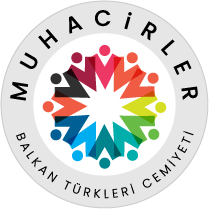Majestic Dynasty of the Gods at Olympus

Majestic Dynasty of the Gods at Olympus
Table of Contents
- Introduction
- The Gods and Goddesses
- Hierarchy and Duties
- Myths and Legacies
- Impact on Culture
- Conclusion
- FAQ
Introduction
In the realm of ancient mythology, the royalty of Olympus reigns supreme. This illustrious pantheon, often depicted as a celestial court, embodies the values, struggles, and aspirations of humanity. The deities, each with unique powers and narratives, were celebrated in timeless tales that have left a lasting imprint on various aspects of art, culture, and philosophy.
The Gods and Goddesses
The royalty of Olympus primarily comprises the Twelve Olympians, each presiding over distinct aspects of the universe. Here’s a comparative overview of their divine roles:
| Name | Domain | Symbol |
|---|---|---|
| Zeus | Sky, Thunder, Justice | Lightning Bolt |
| Hera | Marriage, Family | Peacock |
| Poseidon | Sea, Earthquakes | Trident |
| Athena | Wisdom, War Strategy | Owl |
| Apollo | Sun, Music, Prophecy | Lyre |
| Aphrodite | Love, Beauty | Rose |
| Ares | War | Spear |
| Dionysus | Wine, Festivity | Grapevine |
| Demeter | Agriculture, Harvest | Wheat |
| Hades | Underworld | Cerberus |
| Hephaestus | Fire, Forge | Anvil |
| Artemis | Hunt, Moon | Bow and Arrow |
These royaltyofolympus.net deities not only wield immense power but also showcase the complexities of human emotion and morality. Their stories often celebrate the virtues of courage, wisdom, and love while cautioning against hubris and betrayal.
Hierarchy and Duties
The royalty of Olympus is characterized by a complex hierarchy that reflects their relationships and responsibilities. At the apex stands Zeus, the supreme ruler, who oversees the operations of both gods and mortals. The following list highlights key positions within this divine hierarchy:
- Zeus: King of the Gods, enforce laws and maintain order.
- Hera: Queen of the Gods, protector of marriage and women.
- Poseidon: Mediator of the seas and protector of sailors.
- Athena: Adviser in battles, guiding heroes.
- Apollo: Oracle of Delphi, inspiring the arts and science.
- Aphrodite: Catalyst for romance and desire among mortals.
This structure illustrates a range of roles from guardian to provider, emphasizing the interconnectedness of their functions and the people they govern. Despite their divine nature, the Olympians often encountered human-like challenges, making them relatable figures in ancient narratives.
Myths and Legacies
The tales woven around the royalty of Olympus are rich with drama, romance, and moral lessons. Through epic battles like the Titanomachy and romantic escapades involving heroes and mortals, the myths convey deep underlying messages. Some notable stories include:
- Prometheus and Fire: A tale of defiance, where Prometheus steals fire from Olympus to aid humanity.
- The Trojan War: Driven by the gods’ interventions and favoritism, this epic conflict showcases their influence over human affairs.
- Persephone’s Abduction: A poignant story highlighting the shift of seasons and the bond between Persephone and Demeter.
These narratives not only served as entertainment but also provided ethics lessons, shaping societal norms and values that spanned generations.
Impact on Culture
The royalty of Olympus has permeated various cultural dimensions, influencing art, literature, and philosophical thought. Here’s how:
| Medium | Influence |
|---|---|
| Art | Countless sculptures and paintings depict mythological scenes, showcasing the gods’ grandeur. |
| Literature | Epic poems and modern novels draw on themes of heroism and divine intervention. |
| Philosophy | Ancient philosophers critiqued the morality of the gods, influencing ethical theories. |
This cultural legacy continues to inspire contemporary works, demonstrating that the resonance of Olympus stretches beyond its ancient origins, inviting interpretation and reflection in modern contexts.
Conclusion
The royalty of Olympus remains a remarkable symbol of power, morality, and inspiration. Their divine stories, vibrant personalities, and complex hierarchies echo the human condition, inviting us to ponder our relationship with authority, fate, and the universal themes of love and loss. As we delve into the world of these gods and goddesses, we enrich our understanding of culture and morality that spans time and space.
FAQ
- Who were the primary gods of Olympus? The Twelve Olympians included Zeus, Hera, Poseidon, Athena, Apollo, Aphrodite, Ares, Dionysus, Demeter, Hades, Hephaestus, and Artemis.
- What lessons can we learn from their myths? Their stories often impart moral lessons about humility, loyalty, and the consequences of one’s actions.
- How did the gods influence Greek culture? The gods played a central role in shaping art, literature, and social values, reflecting the challenges and triumphs of humanity.
